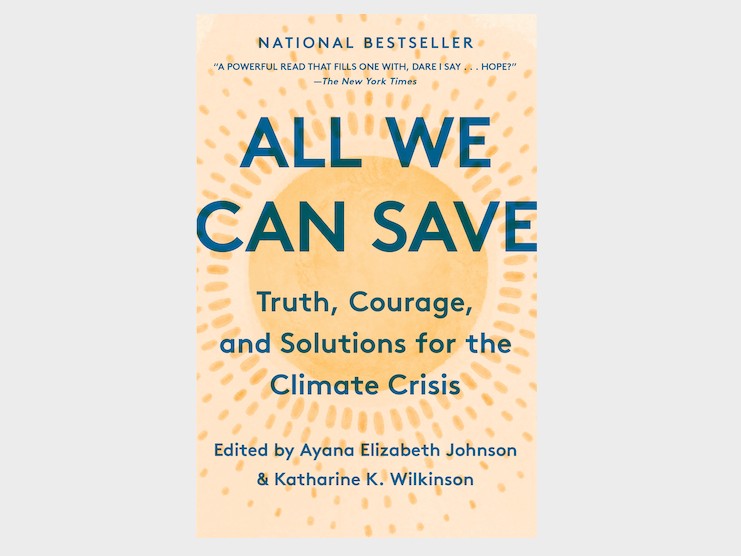All We Can Save - Abigail Dillen
Tuesday, September 28, 2021
We are in a climate emergency and scientists say we have 10 years to stop our environment’s current rate of decline. Environmental lawyer Abigail Dillen contributed an essay to “All We Can Save,” an anthology of encouragement and solutions.
Update RequiredTo play audio, update browser or
Flash plugin.

Scientists say we have 10 years to stop, if not reverse, the physical destruction of the earth. Their concerns apply to climate change and to the entire web of our environment. Though the condition of our planet is grave, many people continue to live in complacency.
Abigail Dillen is a lawyer and President of Earthjustice, an organization dedicated to fighting for the planet. She is also a contributor to the anthology "All We Can Save" and feels realistic about the Earth’s current condition, if we take the necessary steps to combat global climate change. In this interview, she discusses her work as an environmental attorney and explains the responsibility we all share.
Interview Highlights:
On Why She Is Hopeful
“What choice do we have? Right? I don’t know if ‘hopeful’ is the right word. I remain steadfast. I have no other choice … and what makes me excited about that possibility is that we can solve so many other problems. I mean, the idea of creating a society that is more just, as well as one that is livable from a planetary standpoint, is incredible.”
On Why She Stands By The Environmental Laws Of The 1970s
“The first thing to say is that we have very few new laws. Very few. And so what we saw in the ‘70s was this extraordinary era of legislating because we had gone so far letting polluters do whatever they wanted to. So you had the Cuyahoga River on fire in Ohio. You had an oil spill that ravaged the coast of Santa Barbara. You had a smog daze in New York. You had Rachel Carson writing Silent Spring. You had, coming out of the Civil Rights movement in the South, incredible groups of people making the case about how waste was disposed and who was suffering the burden, which, of course, were Black communities. So I think, in the 70s, you were hitting a moment not unlike this one, where society became aware of untenable social injustice, and the environmental dimensions of that becoming too acute to ignore. And so you had a bipartisan reckoning in Congress, and you had Clean Water Act, Clean Air Act, Endangered Species Act, and then more passed between 1970 and 1973, with the creation of the Environmental Protection Agency and a bedrock requirement that the federal government actually consider the environmental considerations of its decisions before making them, which was revolutionary. Those laws responded to an emergency. Those laws are incredible, and I love them. They are a beautiful home, but they have to be renovated.”
On How We Reframe Our Connections With Each Other
“People make assumptions about each other, and those assumptions become a shaky foundation for community, and then for decision-making processes that truly serve everyone. Talk to each other with a sense of openness and empathy. People closest to the problem are also closest to the solution. So having some humility about the fact that anyone who is the closest to the problem that you want to solve will know about it than you ever will. Just having that humility to know that you don’t know.”